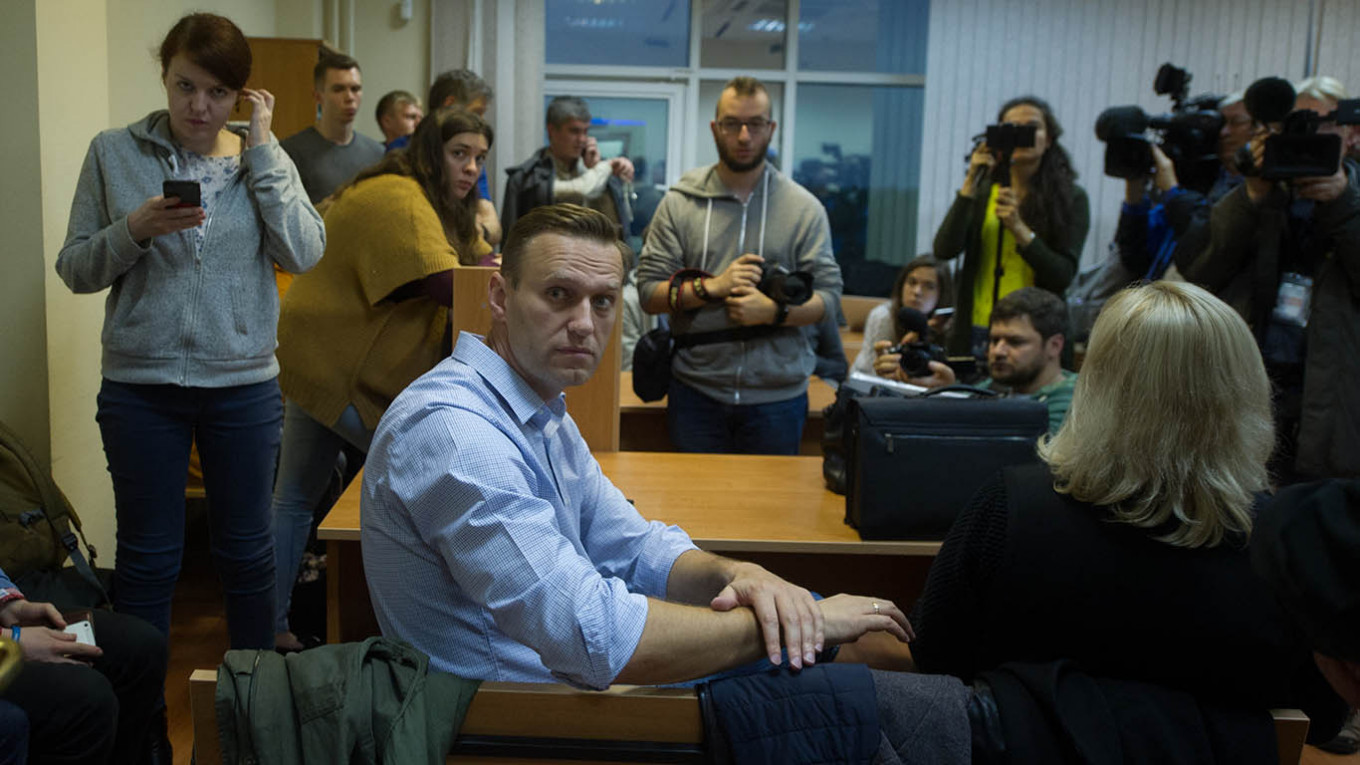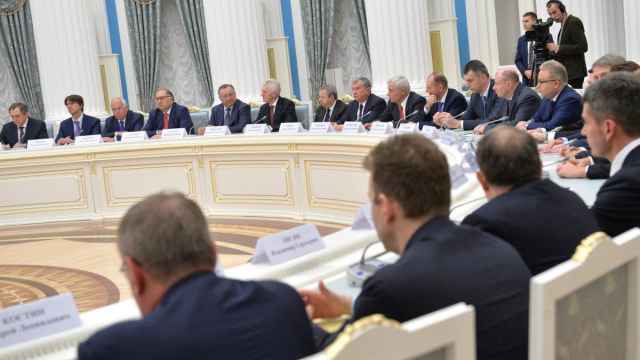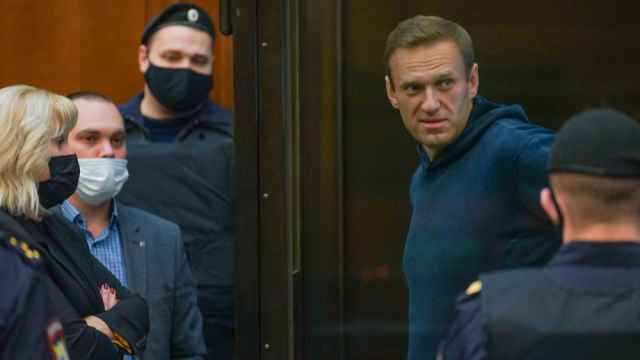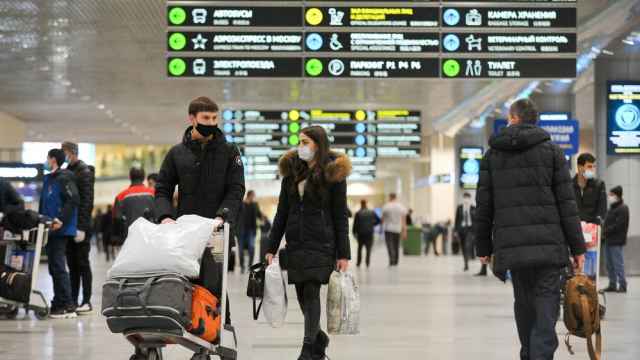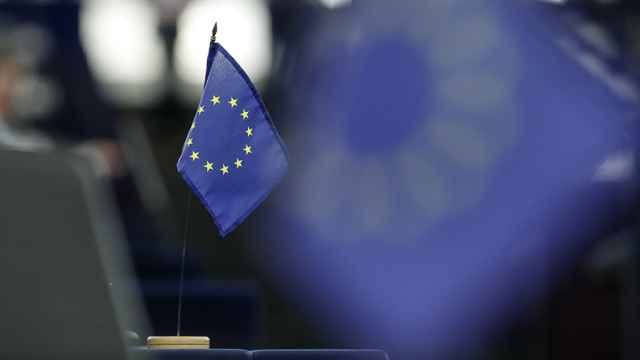Russia on Tuesday accused allies of jailed opposition figure Alexei Navalny of treasonous behavior for urging the EU to sanction members of President Vladimir Putin's circle, including oligarchs and bankers.
Navalny's right-hand man piled fresh pressure on the Kremlin by calling on supporters to stage courtyard protests on Valentine's Day this Sunday, lighting their phone flashlights for 15 minutes.
The call for fresh EU sanctions came at a time of heightened tensions between Russia and the bloc over the imprisonment of Putin's top critic, along with a diplomatic spat that saw both sides expel the others' diplomats.
The plea came on Monday during a video conference between Navalny aides Leonid Volkov and Vladimir Ashurkov, and EU representatives in a conversation dedicated to the bloc's "next steps" on Russia.
Russian Foreign Ministry spokeswoman Maria Zakharova labeled Navalny's team "traitors" for negotiating with people "who see Russia as either an adversary or an enemy or an aggressor."
"They slip some sanctions lists, beg for money and talk about how they will make our people worse off," she said in an interview broadcast on state-run television.
Volkov wrote on the Telegram messenger late on Monday that he and Ashurkov had discussed personal sanctions targeting billionaires Roman Abramovich, the owner of Chelsea football club, and Alisher Usmanov.
He said they also named the head of Russian state bank VTB Andrey Kostin and television executive Konstantin Ernst, among others.
The call was hosted by Poland and included envoys from the United States, Canada, Britain and Ukraine, Poland's mission in the EU said on Twitter.
Russia's economy has been squeezed by a series of Western penalties slapped on Moscow by Washington and Brussels following the annexation of the Crimean peninsula from Ukraine in 2014.
'In the interests of Russia'
But Navalny and his team say that for the Kremlin to change its course, the West should introduce targeted sanctions against oligarchs close to Putin.
Putin's spokesman Dmitry Peskov indicated on Tuesday that the Kremlin backed legislation that would hold those calling for sanctions against Russia criminally liable.
"Obviously such an initiative will enjoy massive support," Peskov told reporters.
Navalny's team insists that the proposed sanctions are in the interests of ordinary Russians.
"It is hard to come up with something more patriotic; something that would be even more in the interests of Russia," Volkov said.
His call for courtyard rallies this weekend came after tens of thousands of people demonstrated across Russia in recent weeks, protesting against Putin's two-decade rule and calling for Navalny's release.
The 44-year-old anti-corruption campaigner was arrested on arrival in Moscow in mid-January after recovering in Germany from a Novichok poisoning attack the West believes was ordered by the Kremlin.
Navalny was jailed for nearly three years last week for violating parole conditions of his suspended sentence while in Germany.
After at least 10,000 people were arrested during the recent protests Navalny's team had postponed mass rallies until the spring or summer.
But on Tuesday, Volkov proposed staging courtyard protests on Sunday — a new form of rallies similar to decentralized demonstrations in neighboring Belarus — that could help avoid detentions.
"Love is stronger than fear," he wrote on Facebook in reference to the rallies on Valentine's Day.
Peskov however warned that anyone violating the law would be punished.
"We will not play cat and mouse with anyone," he said.
EU foreign ministers will debate possible sanctions against the Kremlin on Feb. 22.
Tensions spiked Friday after Moscow expelled three European diplomats during a rare visit to Russia by EU foreign policy chief Josep Borrell, accusing them of taking part in pro-Navalny protests.
Germany, Sweden and Poland retaliated Monday by each ordering the removal of a Russian diplomat.
A Message from The Moscow Times:
Dear readers,
We are facing unprecedented challenges. Russia's Prosecutor General's Office has designated The Moscow Times as an "undesirable" organization, criminalizing our work and putting our staff at risk of prosecution. This follows our earlier unjust labeling as a "foreign agent."
These actions are direct attempts to silence independent journalism in Russia. The authorities claim our work "discredits the decisions of the Russian leadership." We see things differently: we strive to provide accurate, unbiased reporting on Russia.
We, the journalists of The Moscow Times, refuse to be silenced. But to continue our work, we need your help.
Your support, no matter how small, makes a world of difference. If you can, please support us monthly starting from just $2. It's quick to set up, and every contribution makes a significant impact.
By supporting The Moscow Times, you're defending open, independent journalism in the face of repression. Thank you for standing with us.
Remind me later.


